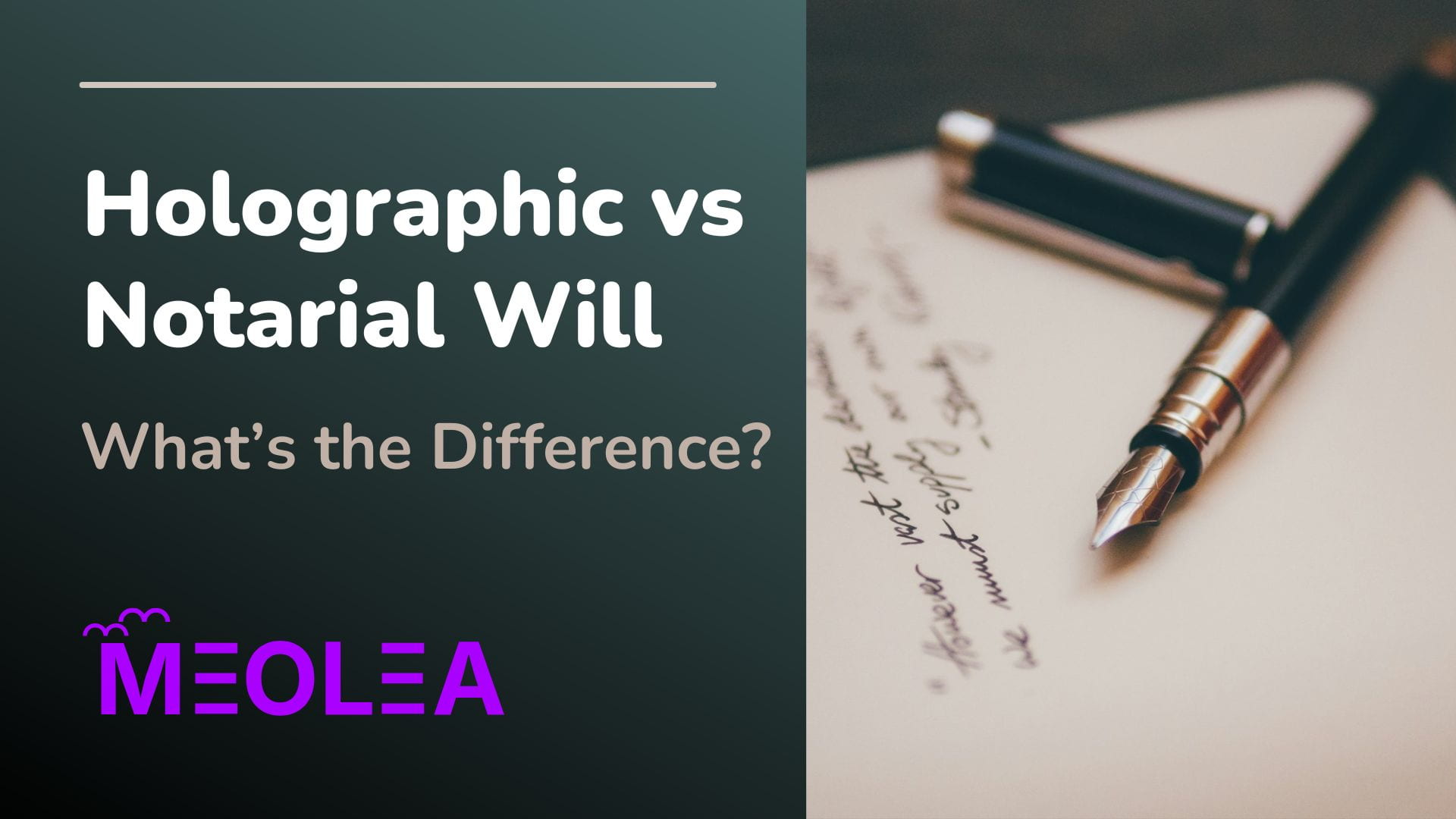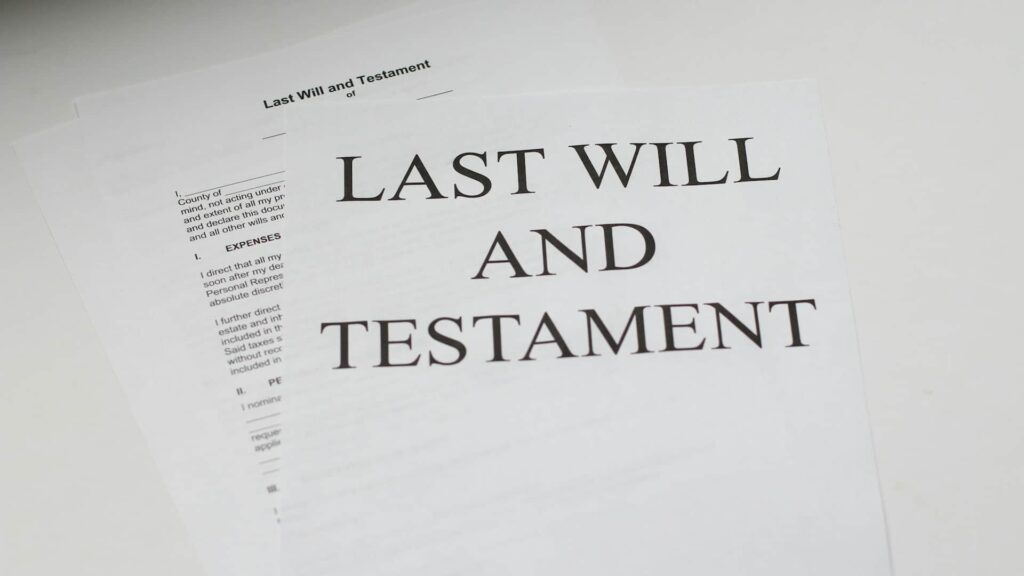
Wondering about holographic vs notarial will and want to know the difference? Both are legally recognized in many countries, but they come with different requirements, legal weight, and levels of security.
Let’s break it down without the formal jargon so you can choose what works best for your situation!
Holographic vs Notarial Will
A holographic will is a handwritten and signed document you create yourself, while a notarial will is drafted with the help of a notary for maximum legal security. Holographic wills are cheaper and easier to create, whereas notarial wills are more formal but harder to contest.
Thinking about writing a will? You’ll likely come across two main types: Holographic (handwritten) wills and notarial (public) wills.
A holographic will is a fully handwritten and signed document you create yourself without the need of a lawyer. The drawback is that it is prone to errors or disputes, and not feasible when you have a complex will to manage.
A notarial will, on the other hand, is drafted or certified by a notary for maximum legal security. They are more formal, harder to contest, and often required for complex estates or international heirs.

Key Differences
| Feature | Holographic Will | Notarial Will |
|---|---|---|
| How it’s created | Handwritten entirely by the person making the will | Drafted and certified with a notary |
| Legal support required | None | Yes – requires notary services |
| Cost | Free | Notary fees apply |
| Ease of creation | Simple and quick | Requires formal appointment and certification |
| Risk of errors | Higher – invalid if format requirements aren’t met | Very low – notary ensures full legal compliance |
| Storage | Must be stored privately or deposited at a court | Usually registered and securely archived |
| Risk of disputes | More likely to be contested | Harder to challenge legally |
| Best for | Simple estates and clear family situations | Complex estates, real estate, international heirs, etc. |
| Supported by Meolea | ✅ Yes – guided structure and export option available | ✅ Yes – prepare drafts and organize for your notary |
✍️ What Is a Holographic Will?
A holographic will – also called an olographic testament – is a fully handwritten document in which you state your final wishes.
To be valid, it must:
- Be written entirely by hand (typed versions are not valid in most jurisdictions)
- Include date and place
- Be signed at the end
- Be clear and unambiguous
| Pros | Cons |
|---|---|
| Free and easy to write | Common mistakes (missing date, unclear wording) can invalidate it |
| No legal appointment needed | It can get lost or overlooked |
| Can be updated quickly | Easier to challenge in court |
| Cheap |
💡 Tip: With Meolea, you can structure your wishes clearly using a guided template, then handwrite it in full to ensure legal validity.

🧾 What Is a Notarial Will?
A notarial will is created and certified with the help of a notary. You either explain your wishes verbally or hand over a draft document that the notary reviews, corrects, and formally certifies.
The will is then registered and stored with a court or official registry.
| Pros | Cons |
|---|---|
| High legal security, very hard to dispute | Notary fees apply |
| No risk of invalid formatting | Changing your will means another formal appointment |
| Automatically stored and traceable | |
| Ideal for complex assets or non-traditional heirs |
💡 Tip: If you have property, large assets, foreign heirs, or expect possible disputes, a notarial will is almost always the safer option.

Which Type of Will Should You Choose?
Choosing between a holographic will and a notarial will depends on your unique circumstances. There’s no one-size-fits-all answer, but understanding your own situation makes the decision much easier.
For Simple Estates and Clear Wishes: Holographic May Be Enough
If your situation is straightforward—say, you have a small estate, no property abroad, and clear relationships with your heirs—a holographic (handwritten) will is often sufficient. It’s quick, free, and can be done without legal assistance.
With Meolea, you don’t have to worry about forgetting anything. We guide you step-by-step through all key topics, so your handwritten will is complete, legally valid, and easy to follow for your loved ones.
For Complex Estates and Legal Clarity: Choose a Notarial Will
If you own real estate, have international assets, expect inheritance disputes, or want to include non-traditional heirs (like unmarried partners or stepchildren), a notarial will is the safer route. It offers legal certainty, prevents common form errors, and reduces the risk of your wishes being contested later.
A notarial will is also often recommended if you want to disinherit someone, create a trust, or manage significant financial assets.

❗️Don’t Forget: Your Will Must Be Found
One common risk with holographic wills is that they might be lost, forgotten, or never found at all! Even a perfectly written will is useless if no one knows it exists.
To prevent this, you can:
- Deposit your handwritten will at a local court or registry, or
- Store a digital copy and access information securely with Meolea, where trusted contacts can be granted access when the time comes.
How Meolea Helps
Whichever type of will you choose, Meolea makes it easier:
- Guided will builder with helpful prompts
- Clear overview of your assets, people, and wishes
- Export options for notaries and loved ones
- Secure digital backup and access control
Your last wishes deserve to be clear, protected, and easy to find. That’s exactly what Meolea was built for.
Meolea makes End-of-Life Planning and Legacy Management super simple! In 5 minutes you can start making preparations and invite your family members.